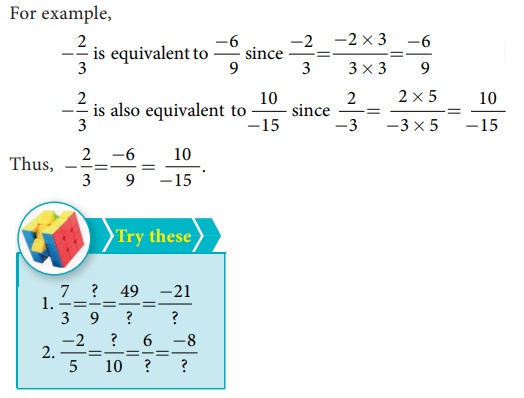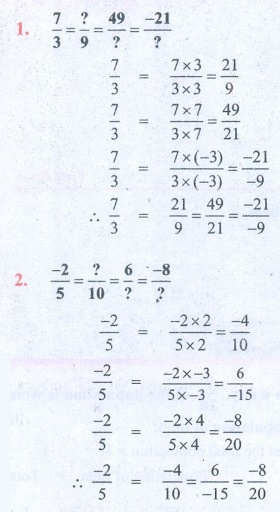Numbers | Chapter 1 | 8th Maths - Equivalent rational numbers | 8th Maths : Chapter 1 : Numbers
Chapter: 8th Maths : Chapter 1 : Numbers
Equivalent rational numbers
Equivalent rational numbers
We know how to write equivalent fractions when a fraction is given. Since a rational number can be represented by a fraction, we can think of equivalent rational numbers, duly obtained through equivalent fractions.
Suppose a rational number is in fractional form. Multiply its numerator and denominator by the same non-zero integer to obtain a rational number which is equivalent to it.
For example,


1. 7/3 = ?/9 = 49/?
= −21/?
7/3 = [7 × 3] / [3 × 3] = 21 / 9
7/3 = [7 × 7] = [3 × 7] = 49 / 21
7 / 3 = [7 × (−3)] / [3 × (−3)] = −21 / −9
∴ 7/3 = 21/9 = 49/21 = −21/−9
2. −2 / 5 = ? / 10 = 6 / ? = −8 / ?
−2 / 5 = [−2 × 2] / [5 ×
2] = −4 / 10
−2 / 5 = [−2 × −3] / [ 5
× −3] = 6 / −15
−2 / 5 = [−2 × 4] / [5 ×
4] = −8 / 20
∴ −2 / 5 = [−4 / 10] = 6 /
−15 = −8 / 20
Related Topics